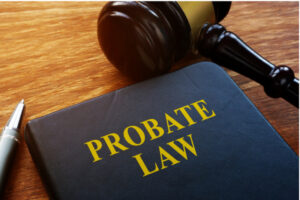What is the Dow Jones Industrial Average?
What is the Dow Jones Industrial Average (DJIA)?
Nov 16, 2020 8:33:18 AM / by Ara Oghoorian posted in stock market, ETF, stock split, Retirement, Honeywell, Exxon, NASDAQ, investing, Saving, ACap Asset Management, Your Money, Fiduciary, S&P 500, Amgen, Fee-Only, Dow Jones Industrial Average (DJIA), Investing, Raytheon, Pfizer, Salesforce, ACap Advisors & Accountants, General Electric, Vanguard
How to Avoid Probate
Oct 17, 2020 1:57:21 PM / by Ara Oghoorian posted in Trusts, Taxes, Fiduciary, Estate Planning, Fee-Only, Capital Gains
What is a Fiduciary Financial Advisor
Sep 7, 2020 11:43:03 AM / by Ara Oghoorian posted in Fiduciary, Fee-Only, Blog
A fiduciary financial advisor is independent and someone who puts your (the client) interests ahead of their own at all times. The true definition of a fiduciary is someone “held or founded in trust or confidence.” And according to the Cornell School of Law, a person with a fiduciary duty is held to a higher standard and has a duty of care, loyalty, good faith, confidence, prudence, and disclosure. All of these combined ensure that a fiduciary financial advisor will always work in your best interest and not have any conflicts of interest. Should your financial advisor be a fiduciary? The answer is yes! When searching for a financial advisor, always make sure they are acting in a fiduciary capacity and not in a suitability capacity, which is significantly less stringent. Insurance companies and investment banks act in a suitability standard whereas a Registered Investment Advisor (RIA) is held to a fiduciary standard.
PODCAST: Ara Oghoorian Answers Financial Questions
Mar 7, 2017 9:23:27 AM / by ACap Advisors & Accountants posted in Fee-Only
Last week, ACap's Founder & President, Ara Oghoorian joined Kent Smetters on the Your Money show, which originally aired on Sirius XM Channel 111, Business Radio powered by The Wharton School.
What financial to-dos are important to complete before year-end?
Dec 9, 2015 11:46:46 AM / by Ara Oghoorian posted in HSA, Banking, Saving, 401(k), Charitable Giving, Fee-Only, Capital Gains, 529 Plan, 457b
Financial Emergency Preparedness Kit
May 23, 2014 4:47:18 PM / by Ara Oghoorian posted in Emergency, General, Fee-Only, Investing
I recently experienced another earthquake in Los Angeles, a fairly common occurrence for Angelenos. The earthquake was a reminder for my wife and me to check our emergency preparedness plan to ensure our spare batteries, medicines, and food supply are fresh, our children's clothes are the right sizes, and that all of our contact information is up to date. Whether it is an earthquake, hurricane, or a tornado, you must be prepared to survive in the aftermath of an emergency. Equally important to preparing a physical emergency kit is establishing and maintaining a financial emergency preparedness kit. What is a financial preparedness kit?
November ACap ReCap - Your Financial Questions Answered
Nov 30, 2013 2:00:02 PM / by ACap Advisors & Accountants posted in IRS, specific identification, 529 plan, College, Surplus, Children, Saving, 401(k), Taxes, Kaiser, prepaid tuition, Roth IRA, Fee-Only, Tax-Loss Harvesting, Capital Gains, 529 Plan, College Planning, Investing
1. I just started at Kaiser, how can I maximize my benefits?
Easy Year-End Tax Saving Strategy
Nov 25, 2013 2:00:20 PM / by ACap Advisors & Accountants posted in capital gains, IRS, ETF, investing, Taxes, Fee-Only, Capital Gains, Investing, mutual funds
If you are thinking of investing some of the idle cash in your non-retirement accounts before year-end, avoid mutual funds because you will owe taxes. As mutual funds buy and sell securities in the fund during the year, they incur capital gains and losses. Mutual funds are required by law to distribute virtually all capital gains made throughout the year to their shareholders in the form of capital gain distributions. These funds usually pay out yearly capital gains distributions to their shareholders of record in December. The date of record is how the mutual fund determines who is eligible for the distribution. Therefore, if you purchase shares before the date of record, you will be entitled to the distribution and have to pay the subsequent taxes even if you didn't benefit from that fund's growth during the year. While it may sound like a good idea to buy a fund and get immediate income, beware that the fund value (known as Net Asset Value) declines on the date of payment by the exact amount of the distribution. So while you receive a taxable distribution, your asset value also declines by an equal amount. Most investors prefer Exchange Traded Funds (ETFs) over mutual funds (click for an article on the differences between mutual funds and ETFs) because of their tax efficiency (most ETFs do not pay capital gains distributions). But caution should still prevail; some ETFs may still distribute capital gains. To avoid having to pay tax on an investment you purchase in December, look on the fund's website to find out their date of record and make your purchase after that date.
%20Final%20copy%202-1.jpg?width=952&height=355&name=ACapA-A(Color)%20Final%20copy%202-1.jpg)

